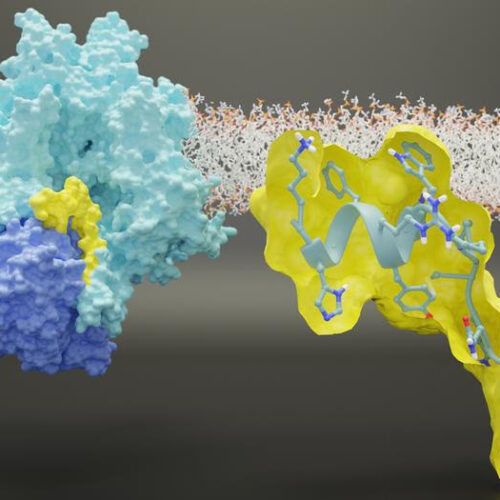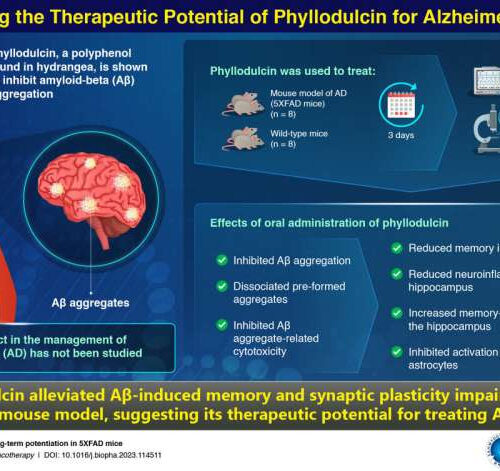by Federico Graciano, Duke-NUS Medical School A colorized scanning electron micrograph of the SARS-CoV-2 virus. Credit: NIAID Exceptionally potent antibodies that can neutralize virtually all known variants of the COVID-19 virus—including omicron, as well as other dangerous animal coronaviruses that could potentially cause future outbreaks—have been discovered in a new study just published in Science Advances. The...
Author: RMG
Vitamin D linked to psoriasis severity in large study
A study found a link between vitamin D levels and the severity of psoriasis. Raymond Forbes LLC/Stocksy Psoriasis is an autoimmune skin disorder characterized by raised, inflamed and scaly patches of skin that can also be itchy and painful. The severity of psoriasis varies greatly from person to person. New research shows that low vitamin D levels...
Hep C has a secret strategy to evade the immune system. And now we know what it is
July 26, 2023 2:33 PM ET By Bec Roldan An image of the hepatitis C virus Image made from a transmission electron microscopy. The virus is adept at evading the immune system. BSIP/Universal Images Group via Getty Images How do viruses do their job of infecting humans? Some of them are experts at evading the immune...
Tiny Robots Detect and Treat Cancer by Traveling Deep into the Lungs
July 27, 2023 Nanorobots attacking cancer. Conceptual computer illustration of a medical nanorobot attacking a cancerous cell. [KATERYNA KON/SCIENCE PHOTO LIBRARY / 1148113613 / Getty images] A tiny robot which can travel deep into the lungs to detect and treat the first signs of cancer has been developed by researchers at the University of Leeds. The ultra-soft...
Gene therapy treats chronic pain by dialing down sodium
NEW YORK UNIVERSITY IMAGE: AN ARTISTIC REPRESENTATION OF THE INTERACTION BETWEEN THE NAV1.7 SODIUM ION CHANNEL AND COLLAPSIN RESPONSE MEDIATOR PROTEIN 2 (CRMP2). THE RESEARCHERS IDENTIFIED A UNIQUE REGULATORY SEQUENCE IN NAV1.7 THAT IS REQUIRED FOR NAV1.7 FUNCTION. THEY FOUND THAT THIS PEPTIDE DISRUPTED THE INTERACTION WITH CRMP2 AND REDUCED EXCITABILITY IN SENSORY NEURONS. THE...
Phyllodulcin could be a potential candidate for treating Alzheimer’s disease
by Sahmyook University Researchers from Korea have now identified phyllodulcin, a major component of hydrangeas, as a potential candidate for the treatment of Alzheimer’s disease. In this animal model study, phyllodulcin controlled the formation and degradation of amyloid aggregates, thereby targeting the main cause of AD. It also reduced memory impairment and improved memory formation processes...
Alterations in the gut microbiome tied to inflammatory types of arthritis
by Bob Yirka, Medical Xpress Example features and the species encoding the enzymes and pathways involved in the differential encoding of vitamin B processing in inflammatory arthritis. (A) Shown are examples of the most differentially encoded B vitamin pathways and enzymes. (B) Shown are the taxa contributing to vitamin B7 encoding. Credit: Science Translational Medicine (2023). DOI:...
Researchers develop 3D printed bandage that delivers innovative treatment for diabetic foot ulcers
by Queen’s University Belfast Credit: Queen’s University Belfast Researchers from Queen’s University Belfast have designed a new 3D printed bandage, known as a scaffold, which presents an innovative method of treatment to heal diabetic foot ulcers (DFUs). The research is the first of its kind and is a breakthrough for diabetes management. The findings have been published in...
Researchers discover genetic locations for increased risk of hidradenitis suppurativa
by Kendall Daniels, University of North Carolina at Chapel Hill School of Medicine Histologic image of hidradenitis suppurativa. Credit: University of North Carolina at Chapel Hill School of Medicine University of North Carolina at Chapel Hill (UNC) School of Medicine researchers Christopher Sayed, MD, Yun Li, Ph.D., and Karen Mohlke, Ph.D., discovered the genomic locations that contribute to...
Key molecular pathway affecting atherosclerosis progression discovered
by Medical University of Vienna Credit: Kateryna Kon/Shutterstock Heart attacks and strokes arising from atherosclerosis, which is driven by the accumulation of lipids in the inner linings of arteries, are responsible for about one third of deaths worldwide. Accordingly, atherosclerosis is the focus of intense research aimed at the development of novel effective treatments. A team of researchers from MedUni...










